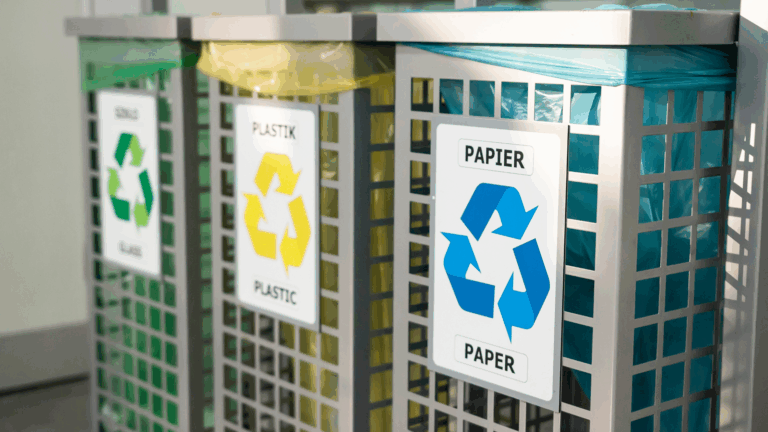
Effective waste management is a crucial part of any successful and sustainable retail organisation
The UK is a nation of shoppers. And retail organisations provide the goods that consumers demand. But with environmental concerns constantly growing, and pressure on governing bodies and businesses constantly building, every modern retail business needs to operate in a way that champions sustainability.
And a hugely important but often overlooked aspect of any sustainability initiative is waste management. With stringent regulations and consumer awareness shaping the industry, retail businesses need to practise compliance, sustainability and cost-effectiveness when it comes to waste.
The importance of retail waste management
According to the Department for Environment, Food & Rural Affairs (DEFRA), the retail sector accounts for around 10% of all commercial waste in the UK. This amounts to millions of tonnes annually, and includes everything from packaging materials to food waste.
If not managed properly, retail waste can lead to eye-watering fines and damage to a brand’s reputation, as well as a negative impact on the environment.
Effective waste management requires compliance with regulations like the Waste (England and Wales) Regulations 2011, but it is also about aligning with consumer expectations. A study by Deloitte found that 43% of consumers actively choose brands with sustainable practices.
This means that retail waste management can no longer be an afterthought; instead it needs to be a key consideration with the power to influence customer loyalty and brand perception.

What does retail waste look like?
Retail waste can take several forms. The most significant contributor is packaging waste, including plastic, cardboard and glass. The UK’s current Packaging Waste Regulations require all retail businesses to cut packaging waste by 76% by 2025.
Food waste is another key contributor, as the UK generates 9.5 million tonnes of food waste annually, and 1.4 million tonnes of this comes from the retail sector.
With the increasing use of electronic devices in retail operations, e-waste is also becoming a growing concern. The Waste Electrical and Electronic Equipment (WEEE) Regulations 2013 place responsibilities on retailers to recycle or safely dispose of e-waste.
Finally, general waste refers to non-recyclable items, which should be minimised to reduce landfill contributions. Cutting general waste can have a positive financial impact as well as a sustainable one, as the Landfill Tax recently rose to £102.10 per tonne.
Effective waste management strategies
To understand the types and volumes of waste your business generates, and identify areas for improvement and potential cost savings, start by conducting a waste audit. You should also implement a system for segregating different types of waste at the source. Clear signage and staff training can significantly improve the effectiveness of this process.
Another important step towards improved waste management is to engage with a specialist waste management company to provide robust recycling services. Initiatives like take-back schemes for packaging or electronics can significantly boost recycling rates, and for food retailers, partnerships with food redistribution charities like FareShare or Too Good To Go can help reduce waste by redistributing surplus food.
Sustainable procurement also has a direct impact on waste disposal. Reduce waste at the source by choosing suppliers that offer minimal or recyclable packaging, and by buying in bulk to reduce packaging waste. This will result in less waste going to landfill.
By integrating these practices, UK retailers can contribute to a more sustainable future while also enhancing both their brand reputation and their bottom line.

Contact Everflow today!
At Everflow, our goal is to make your utilities simpler. We ensure you get great-value contracts that are tailored to your needs and easy to manage.


